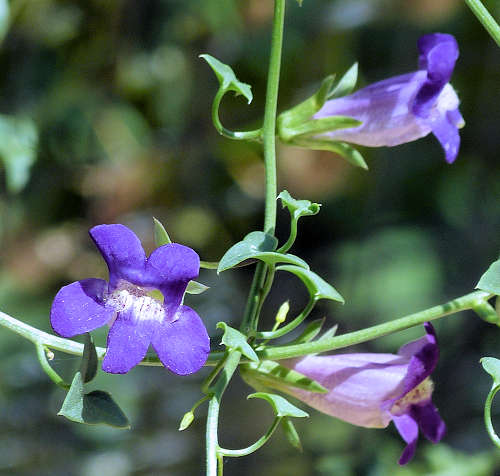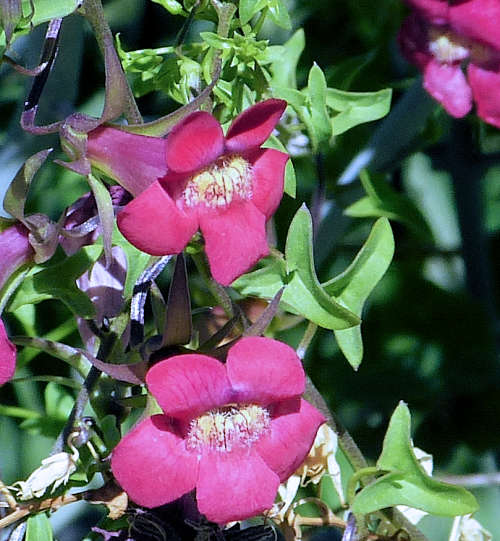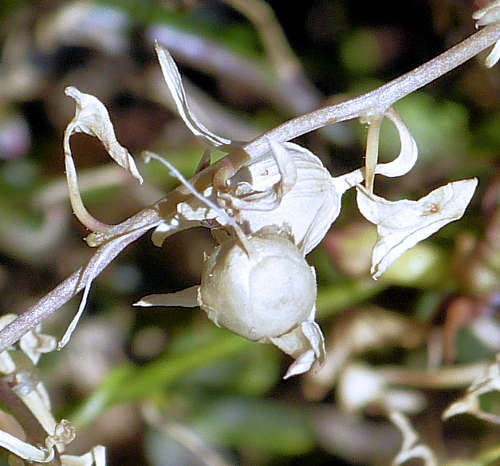Description
Form:
An herbaceous, twining vine.
Lifespan:
Perennial.
Leaf retention:
Deciduous.
Growth rate:
Rapid.
Mature Size:
6-10' (1.8-3m) long.
Flowers:
Blue, purple, red or pink, tubular with two upper lobes and three lower lobes.
The flowers have spotted stripes inside a white throat and are 3/4" (19mm) long.
They occur singularly at leaf nodes.
Bloom:
Mid-spring to mid-fall.
Fruit:
A dried, very small, round seed capsule containing many tiny, knobby seeds.
Leaves:
Green, smooth, vaguely triangular or arrowhead-shaped, up to 1" (2.5cm) long.
Stems:
Herbaceous, green, thin, smooth, twinging.
Roots:
Non-invasive.
Wildlife:
The flowers attract pollinating insects, possibly hummingbirds.
This plant hosts the Common Buckeye butterfly caterpillar.
Toxic / Danger:
No.
Origin:
California to Texas, Florida and Mexico.
Cultivation and Uses
USDA hardiness zones:
8b-10. This plant dies to the ground in freezes but can recover from its roots when
temperatures stay above 15°F (-9.4°C).
Heat tolerant:
Part shade is needed in high temperatures.
Drought tolerant:
Two weeks maximum.
Sun:
Full sun to part shade.
Planting:
Locate this desert plant on a fence or trellis in part shade. Mulch the root area.
Soil:
This plant needs a well draining location, but is tolerant of soil types otherwise. It
performs better with some organic material present, and pH 6.0-7.8 (slightly acidic to
slightly alkaline).
Water after becoming established:
This plant displays best with irrigation once a week but may tolerate once every two weeks.
Mulch:
The root area should be protected from winter freezes and summer heat with an organic mulch.
Prune:
Removing green seed capsules may increase blooms. Remove dead vines and leaves as needed.
Litter:
Dead vines, leaves, and seed capsules in fall or during drought.
Propagation:
Seed.
Uses:
A delicate-appearing ornamental for close viewing.
Comments
This plant is a member of the plantain (Plantaginaceae) family.
Do you have additional information or a different experience for this plant that you would
like to share? Email info@GardenOracle.com. All contributions are welcome and appreciated.



